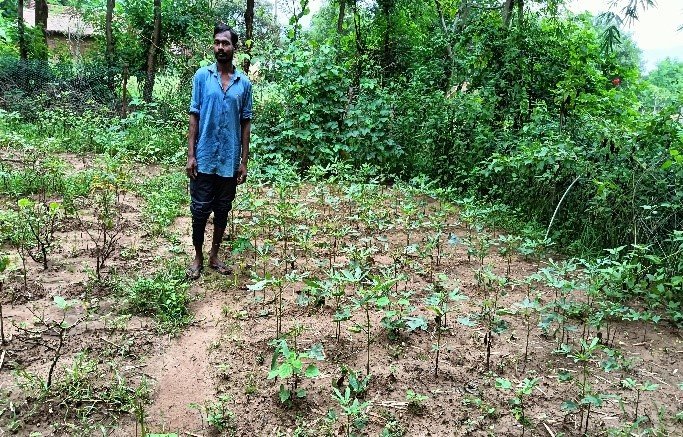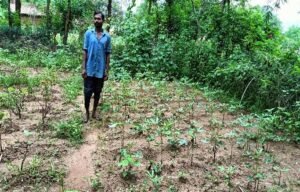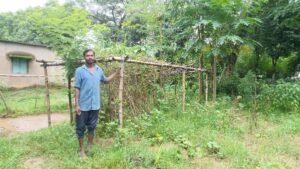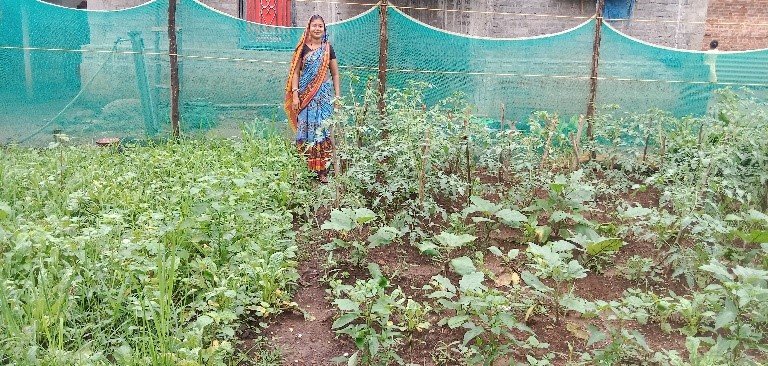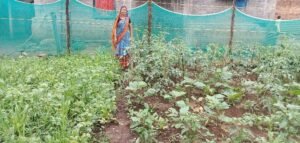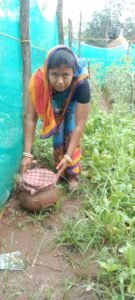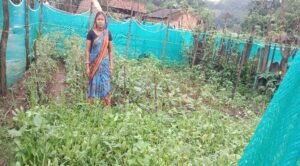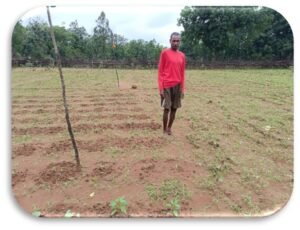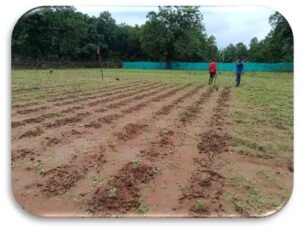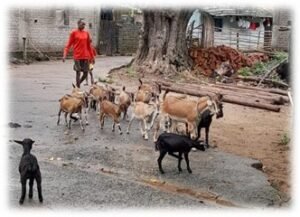Success Story of Santus Sinku – From Struggles to Self-Reliance
Santus Sinku, a resident of Noana village, lives with his wife and three children. He owns 3.75 acres of land, out of which 0.75 acre was lying fallow and the rest 3 acres was upland, used only for rainfed paddy cultivation. From paddy farming, he used to earn around ₹35,000–₹40,000 annually, which was not enough to meet his family’s basic needs. Life was full of difficulties.
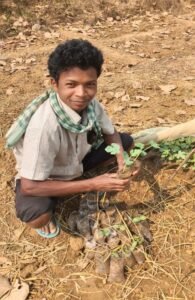
In 2023, under the Climate Resilient Organic Agriculture Project implemented by Sambandh in collaboration with the Azim Premji Foundation, awareness programs and trainings were conducted in the village. During this time, Santus approached the Sambandh team for guidance on how to improve his income. After understanding his situation, the team supported him in converting his 0.75-acre fallow land into productive farmland.
With technical support and inputs from Sambandh, Santus started cultivating chilli and chickpea. From chilli, he earned ₹4,450 and from chickpea ₹8,600, making a total profit of ₹13,050. This experience increased his confidence and encouraged him to explore more farming opportunities.
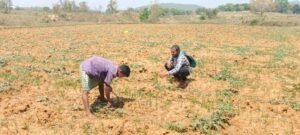
He then consulted the Sambandh team to know how he could make better use of his 3 acres of paddy land. The Sambandh team advised him to cultivate watermelon in the summer after the paddy harvest. With input support from Sambandh, he cultivated watermelon on 1 acre and earned ₹70,000 from its sale.
Through consistent support and expert guidance from Sambandh, Santus adopted improved farming practices. Today, he grows three crops a year and has significantly increased his income. He is now able to take care of his family properly and lives with confidence and dignity. Santus Sinku has become an inspiration for many other farmers in Noana village.
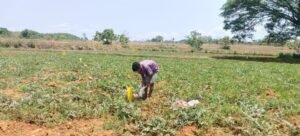
Conclusion:
Santus Sinku’s journey reflects how timely support, technical guidance, and the willingness to adapt can transform a farmer’s life. From a struggling cultivator dependent solely on paddy, he has now become a confident multi-crop farmer practicing sustainable agriculture. His success story serves as a model of hope and motivation for countless small and marginal farmers across the region.



